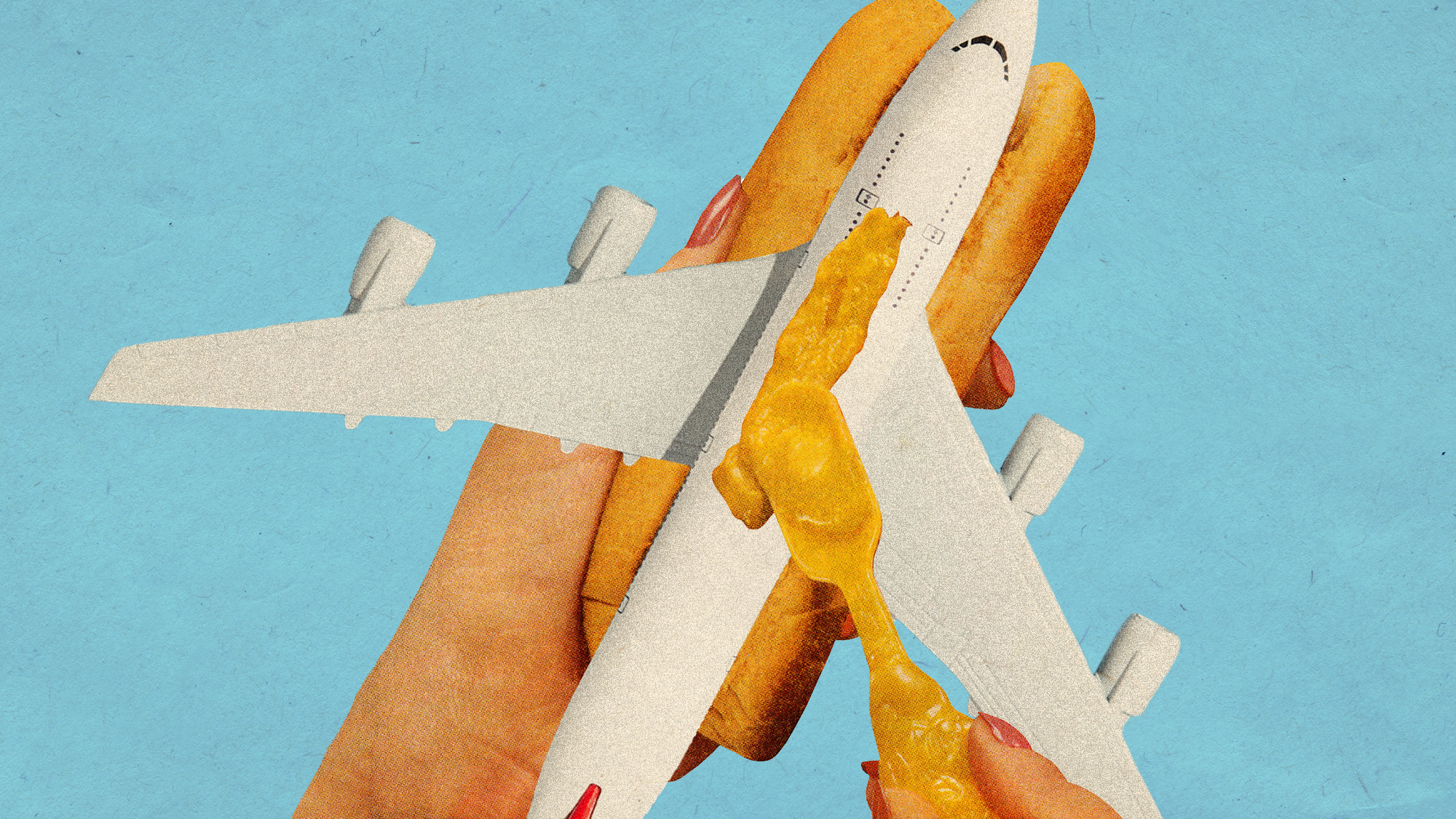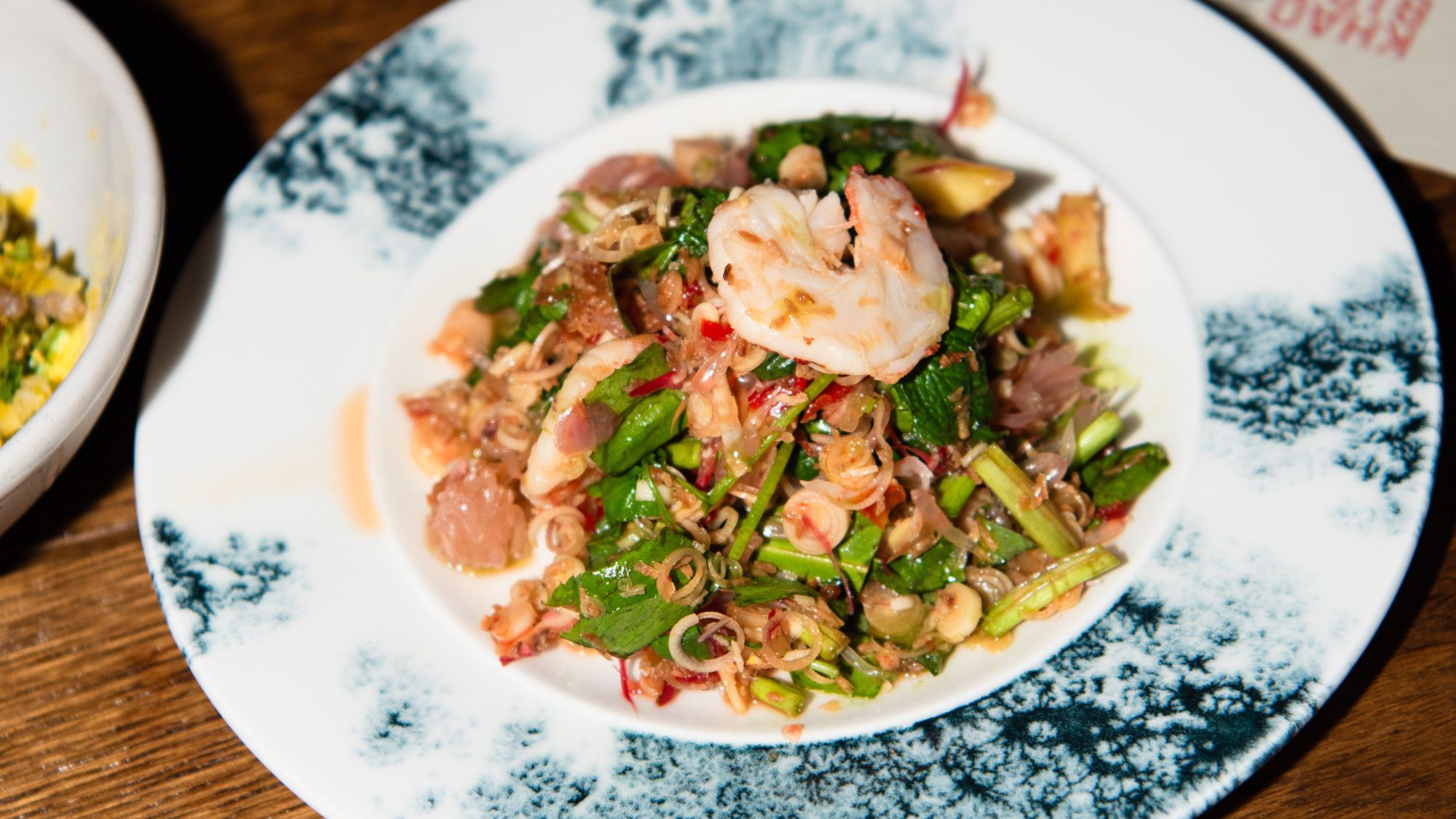Airplane food is reportedly getting much worse
Cockroaches and E. coli are among the recent problems encountered in the skies


A free daily email with the biggest news stories of the day – and the best features from TheWeek.com
You are now subscribed
Your newsletter sign-up was successful
"What's the deal with airplane food?" has been the punchline of jokes for years, but recent events indicate that there may be more issues with food in the skies than just the taste. A series of reports throughout 2024 have highlighted a growing problem within the aviation industry: food safety aboard airplanes.
There have been alleged incidents that include rodents, insects and a slew of food poisoning. While federal agencies work to monitor airplane food, experts say that not everything is as it seems.
What incidents have occurred with airplane food?
In the past year, Delta passengers on a flight from Detroit to Amsterdam were "served spoiled meals from a Do & Co kitchen," and the "allegedly moldy chicken sickened more than a dozen fliers," said The Washington Post. Months later, an Air India passenger posted a video on X that appeared to show a dead cockroach in her omelet; The airline confirmed to Fox Business that the incident occurred but had no further comment.
The Week
Escape your echo chamber. Get the facts behind the news, plus analysis from multiple perspectives.

Sign up for The Week's Free Newsletters
From our morning news briefing to a weekly Good News Newsletter, get the best of The Week delivered directly to your inbox.
From our morning news briefing to a weekly Good News Newsletter, get the best of The Week delivered directly to your inbox.
That same month, a "mouse scampered out of a meal on a Scandinavian Airlines flight from Norway to Spain and scurried off," said the Post. Other incidents include alleged cases of E. coli on Delta and "reports of unsanitary practices by a caterer that provides meals for British Airways."
Why is this happening?
Following the Sept. 11 terrorist attacks, regulations "changed what types of cooking knives crews can work with in the air," so airlines "have long looked for ways to cut food production costs and reduce meal preparation times for flight attendants on board," said CNN. This is a far cry from the days of old, when meals were "prepared in four simultaneously operating galleys, where dishes can be cooked in five-minute ovens," stated a 1958 Pan Am commercial.
The bigger issue, though, is that the "confined nature of airplane travel makes foodborne illness outbreaks especially challenging to manage," Darin Detwiler, a food safety adviser at Northeastern University, said to the Post. The FDA requires inspections at least every three years for airline catering facilities, and the agency "has written up two of the industry's largest catering companies, LSG Sky Chefs and Gate Gourmet," the Post reported. This reportedly included problems with temperature control, pests and cross-contamination, all of which can contribute to illnesses.
And "unlike restaurant food, which is hastily delivered to tables, in-flight meals can sit for hours before being consumed," said the Post. If airline meals are kept improperly, then "people can become infected with pathogens when food is not cooked, cooled, reheated and/or stored at the correct temperature, Carlota Medus, an epidemiologist at the Minnesota Department of Public Health, said to the Post.
A free daily email with the biggest news stories of the day – and the best features from TheWeek.com
What should you do on your next flight?
There are certain precautions that can be taken when choosing airplane food. This includes "avoiding raw seafood and undercooked food on planes, as well as anything that needs to be kept cold," doctor Jen Dunphy said to Yahoo!. However, Dunphy also reiterated that food on airplanes, despite these recent events, is "generally safe and is regulated" by the FDA. But inspections do not occur that regularly.
Items like pasta "may be a better choice than dishes that contain meat," food safety adviser Darin Detwiler said to Food & Wine. But the only surefire way to avoid sickness from airplane food is not to eat it. For people "who are concerned about food safety while traveling, they could consider bringing shelf-stable snacks for the plane like granola bars, trail mix and nuts," food safety expert Ellen Shumaker said to Food & Wine.
Justin Klawans has worked as a staff writer at The Week since 2022. He began his career covering local news before joining Newsweek as a breaking news reporter, where he wrote about politics, national and global affairs, business, crime, sports, film, television and other news. Justin has also freelanced for outlets including Collider and United Press International.
-
 Local elections 2026: where are they and who is expected to win?
Local elections 2026: where are they and who is expected to win?The Explainer Labour is braced for heavy losses and U-turn on postponing some council elections hasn’t helped the party’s prospects
-
 6 of the world’s most accessible destinations
6 of the world’s most accessible destinationsThe Week Recommends Experience all of Berlin, Singapore and Sydney
-
 How the FCC’s ‘equal time’ rule works
How the FCC’s ‘equal time’ rule worksIn the Spotlight The law is at the heart of the Colbert-CBS conflict
-
 Microdramas are booming
Microdramas are boomingUnder the radar Scroll to watch a whole movie
-
 The year’s ‘it’ vegetable is a versatile, economical wonder
The year’s ‘it’ vegetable is a versatile, economical wonderthe week recommends How to think about thinking about cabbage
-
 Wellness retreats to reset your gut health
Wellness retreats to reset your gut healthThe Week Recommends These swanky spots claim to help reset your gut microbiome through specially tailored nutrition plans and treatments
-
 In Okinawa, experience the more tranquil side of Japan
In Okinawa, experience the more tranquil side of JapanThe Week Recommends Find serenity on land and in the sea
-
 One great cookbook: Sara Kramer and Sarah Hymanson’s ‘Kismet: Bright, Fresh, Vegetable-Loving Recipes’
One great cookbook: Sara Kramer and Sarah Hymanson’s ‘Kismet: Bright, Fresh, Vegetable-Loving Recipes’the week recommends The beauty and wonder of great ingredients and smart cooking
-
 Luke Larsson’s prawn and pomelo salad
Luke Larsson’s prawn and pomelo saladThe Week Recommends Pomelo-sweetened prawns meet spicy dressing and herbs in a sharp Thai salad
-
 Doreen Williams-James’ prickly pear juice recipe
Doreen Williams-James’ prickly pear juice recipeThe Week Recommends Jewel-toned, natural juice is a thirst-quenching treat
-
 The best food books of 2025
The best food books of 2025The Week Recommends From mouthwatering recipes to insightful essays, these colourful books will both inspire and entertain
